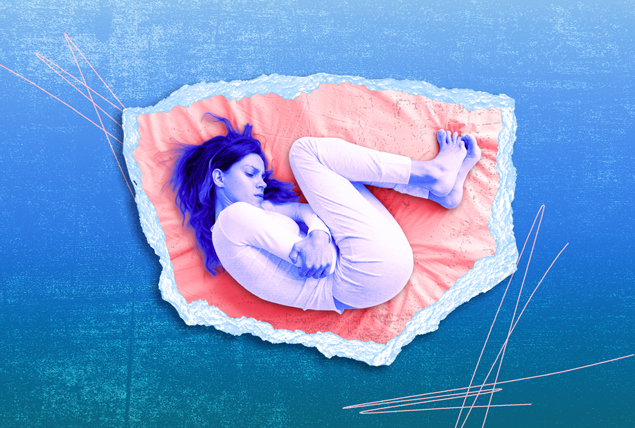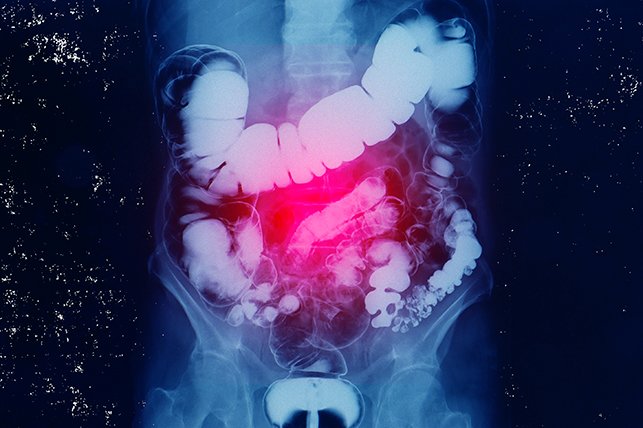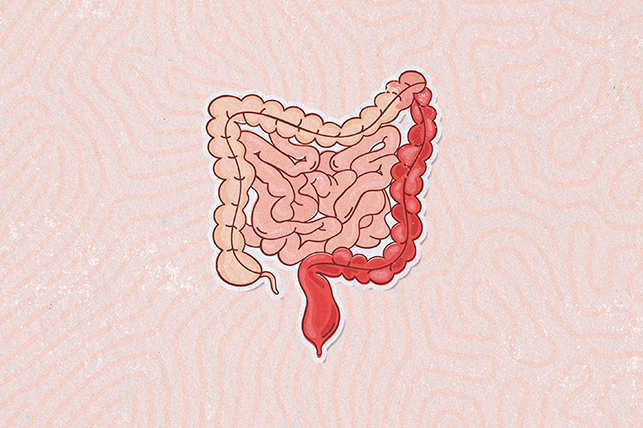How To Manage Sex with Ulcerative Colitis

The bowel cramping and extra toilet time that accompany ulcerative colitis are difficult to ignore, especially when it impairs our sex lives. While this disease has a habit of dominating daily life, don’t let it get between intimate moments with your partner.
What is ulcerative colitis?
Inflammatory bowel disease (IBD) is a broad term that describes chronic inflammation of the gastrointestinal tract and includes Crohn’s disease and ulcerative colitis.
“Ulcerative colitis is an inflammatory bowel disease that affects the colon and often presents with rectal bleeding as well as lower abdominal pain,” said Corey R. Babb, D.O., a sexual medicine physician with Haven Center in Tulsa, Oklahoma.
An estimated 3.1 million Americans have been diagnosed with IBD, according to the Centers for Disease Control and Prevention.
According to the National Institute of Diabetes and Digestive and Kidney Diseases, between 600,000 and 900,000 people are living with ulcerative colitis in the U.S. No one is alone in facing this disease or its attempts to cut off sexual satisfaction.
What are the symptoms of ulcerative colitis?
The symptoms of ulcerative colitis are broad-ranging.
"The condition is symptomized by cramping, diarrhea, urgency, tiredness, anemia, weight loss, nausea, joint pain and even liver disease," said Charlotte Cremers, M.S., a general practitioner and relationship expert in London.
Definitively diagnosing ulcerative colitis requires an endoscopic procedure with a tissue biopsy to analyze the extent of the inflammation. Typically, this is done using a sigmoidoscope, a thin, flexible tube with a camera inserted into the rectum.
"Ulcerative colitis has no cure, though certain medications can calm the inflammation," Cremers said. "The treatment medications depend on the individual's age, needs and the condition's severity. Common medication recommendations include aminosalicylates for mild and moderate ulcerative colitis, corticosteroids for severe conditions, immunomodulators when your immune system is overactive, and biologics for severe and moderate conditions, especially in the immune system."
Without a cure, lifestyle changes can effectively help control the chronic conditions associated with ulcerative colitis. There is no universal, one-size-fits-all approach. Finding the right solution takes a little trial and error since each patient is different.
"Ulcerative colitis can be managed through lifestyle and diet changes to increase the duration between flare-ups," Cremers said. "The changes include skipping dairy beverages and food, avoiding fiber-rich foods, eating light meals and hydration."
Physical and sexual impact of ulcerative colitis
"Ulcerative colitis can result in sexual problems in both men and women, such as erectile dysfunction, vaginal pain during sex, loss of interest and panic concerning your sex performance," Cremers said.
Chronic fatigue doesn’t help either.
"Fatigue can also be a big part as when [it affects] the body or mind, often in the form of brain fog, it can be harder to enjoy or even feel sexual stimulation," said Ness Cooper, an American Board of Sexology-certified sexologist based in Norfolk, England. "Pain may also be a factor for some and may distract from other sensations.
"On top of this, certain medications may cause unwanted side effects, which can put individuals off from exploring sex or make it harder to feel sensations or experience orgasm."
While all the individual symptoms of ulcerative colitis are frustrating to manage, it is their combination, and the toxicity that results, that can be exhausting, debilitating and overwhelming at times.
You don’t have to give up sex. You just need to get creative when you have ulcerative colitis.
Negotiating sex with ulcerative colitis
The first step to managing ulcerative colitis and your sex drive is figuring out if you are ready to have sex.
"Take things slowly, and make sure that you are feeling up to engaging in sexual activity," Cremers said.
Not wanting to pursue sex can feel like a personal failure, especially if you are dealing with an unsympathetic partner or body image issues due to the symptoms of ulcerative colitis. Strip away outside pressures and ask yourself if you are ready for sex.
It’s OK if your energy is too focused on healing to consider pleasure. Come back to it later. Remember that no one owes someone sex, so take a break and look after yourself. Talk about sex with your partner so you can find other ways to be intimate.
When you are ready to dive back in, start with self-pleasure. Conditions such as ulcerative colitis change how we connect with our bodies and can fracture our relationship with sensuality. Take stock and figure out how your body and sexual function have changed and if your approach to pleasure needs to be modified.
Start by focusing on clitoral stimulation, which should avoid triggering any vaginal pain, and build up slowly to establish if penetration is still possible. If penetration is painful, consider consulting a sex therapist or gynecologist. They can prescribe dilators to help enable penetration by a penis or toys.
When it comes to managing the impact of fatigue on sex, work on pacing. It might be time to say goodbye to four-hour sex sessions and refine your approach. Pleasure can be invigorating for chronic fatigue, but it can cause a significant energy drain.
Try a more passive role during sex. Prioritizing less strenuous sex positions and limiting the amount of playtime could help protect your energy, making more frequent sex possible.
Prioritize communication
Explaining the condition and its effects is the cornerstone for any successful sex life with ulcerative colitis. Building a successful sex life is impossible without communication.
"Talk to your partner about your chronic illness or disability and how it affects you in various ways, not just during sex, can help," Cooper said. "Mention how you’d like sex to change, and after making suggestions see if they have any ideas, too. When your partner is also involved in helping to make suggestions it helps strengthen the chance they will happen."
Men and women with IBD may find the idea of talking about their condition nerve-wracking. Set aside time to discuss why ulcerative colitis affects your sex life and how you’d like to improve your sexual health and intimacy.
Plan ahead. Write down your main thoughts before initiating the discussion. If it's still too difficult, write a letter explaining how you feel, and then take the time to answer your partner’s questions.
Planning ahead is another tried-and-tested method for managing sex when you have ulcerative colitis. While unplanned passion may be the go-to for all of us, making a plan and following through can be equally satisfying. Pacing daily life will be easier with the outline of a sex schedule in mind, and it can ease the anxiety that builds around trying to initiate sex with a chronic illness.
The bottom line
Separate shame from your condition. You can try to minimize the side effects of ulcerative colitis through lifestyle and dietary changes, but the only thing people with IBD can control is how to manage and communicate its effects. Talk to your doctor if your symptoms are becoming unmanageable and affect your mental health.


















